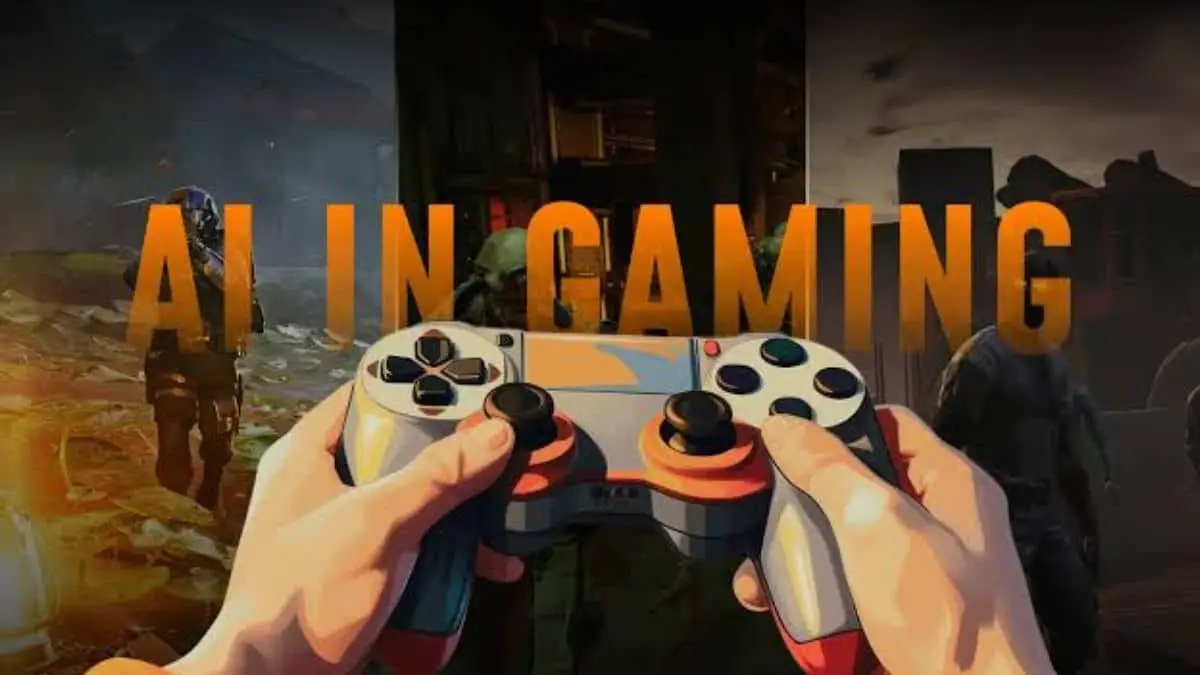Video games have always been about creating immersive, engaging experiences that transport players to another world. Over the years, advancements in technology have made these experiences more realistic, more interactive, and more personal. At the forefront of this evolution is artificial intelligence (AI), a revolutionary force that is fundamentally changing the way we play video games.
From dynamic storytelling to adaptive gameplay, AI is enabling game developers to craft experiences that are not only unique to each player but also different every time the game is played. Here’s how AI is redefining the gaming landscape and making every player’s journey distinct and memorable.
How AI Is Changing the Way We Play Video Games
1. Dynamic Storytelling: Crafting Unique Narratives
One of the most profound ways AI is influencing video games is through dynamic storytelling. Traditionally, games have followed linear narratives or branching storylines, where player choices determine pre-written outcomes. AI, however, is taking this to the next level by generating marvel-knights-punisher-2025-1-frank-castles-nightmare/”>Stories on the fly, based on the player’s decisions.
Imagine playing a game where every choice you make—whether it’s sparing an enemy, forging alliances, or exploring a specific path—alters not just the immediate outcome but the entire narrative arc. AI analyzes your behavior and preferences, weaving a story that feels personalized and unique. No two players will have the exact same experience, and even replaying the game can lead to entirely different outcomes.
For example, AI can create a world where a minor decision early in the game leads to ripple effects that alter character relationships, introduce new quests, or change the game’s ultimate ending. It’s not just about making choices; it’s about experiencing a narrative that feels alive and reactive to your actions.
2. Procedural Generation: A New Adventure Every Time
AI-driven procedural generation ensures that every time you play a game, the world feels fresh and unexplored. This technique involves AI creating game elements—such as levels, environments, or missions—dynamically rather than relying on pre-designed content.
Consider a dungeon crawler where each playthrough features different layouts, enemy placements, and treasure locations. The AI analyzes your previous runs and adapts the next one to keep you challenged and entertained. This makes games infinitely replayable, as players never know what to expect.
Games like No Man’s Sky and Hades have already showcased the potential of procedural generation, with AI creating sprawling galaxies or intricate levels that feel handcrafted. But as AI becomes more advanced, we can expect even more sophisticated and personalized content.

3. Adaptive Gameplay: Tailoring Challenges to the Player
AI isn’t just about changing the game world; it’s also about understanding the player. Modern AI systems can analyze how you play—your strategies, strengths, and weaknesses—and adapt the gameplay to suit your skill level.
For example, if you’re struggling with a particular boss fight, the AI might adjust the enemy’s attack patterns or suggest alternative strategies to help you succeed. Conversely, if you’re breezing through challenges, the AI can introduce tougher enemies or new mechanics to keep the game engaging.
This level of adaptability ensures that every player, regardless of their skill level, can enjoy the game at their own pace. It also creates a sense of mastery, as players feel like the game is learning and growing alongside them.
4. AI-Driven NPCs: Characters That React and Evolve
Non-playable characters (NPCs) are a staple of video games, but AI is transforming them from static, scripted entities into dynamic, lifelike companions—or adversaries.
AI-driven NPCs can remember your actions, react to your choices, and even develop unique personalities over time. For instance, an NPC might become more loyal if you consistently help them, or grow distant if you ignore their needs. Similarly, enemies can learn your strategies and adapt their behavior to counteract your moves, making each encounter unpredictable.
This level of interactivity blurs the line between scripted gameplay and organic interaction, creating a world that feels alive and responsive.
5. Visual Customization: Changing the World and Characters
AI is also enhancing the visual aspects of games, making it possible to alter character appearances, environments, and even entire worlds based on player preferences or in-game actions.
Imagine a role-playing game where your character’s appearance evolves based on your choices. If you consistently take the path of the hero, your character might develop a glowing aura or noble attire. On the other hand, darker choices might lead to a more sinister look.
AI can change the environment to reflect the story. A once-thriving village might decay into ruins if you fail to protect it, or bloom into a bustling hub if you nurture its growth. These changes not only add depth to the game world but also make players feel like their actions truly matter.

6. Multiplayer Enhancements: Personalized Social Interactions
AI is also revolutionizing multiplayer games by fostering more meaningful interactions between players. In massive online worlds, AI can create tailored experiences for groups of players, such as dynamically adjusting the difficulty of a raid based on the team’s composition and skill level.
AI can manage in-game economies, generate unique quests for different players, and even simulate human-like behavior in NPCs to fill gaps in multiplayer scenarios. This ensures that every player, whether solo or in a group, has an engaging and personalized experience.
7. The Future of AI in Gaming
As AI continues to evolve, the possibilities for its application in video games are virtually limitless. Future games could feature AI-powered directors that oversee the entire gaming experience, ensuring that every moment feels cinematic and impactful. These directors could balance pacing, adjust difficulty, and introduce unexpected twists, making every playthrough a unique adventure.
Advancements in natural language processing could enable true conversational AI, allowing players to interact with NPCs in a natural and unscripted way. Imagine negotiating with a virtual merchant, debating with a rival, or forging a deep connection with a companion—all through realistic dialogue.
Also Read: How Powerful Is Kraven the Hunter? A Detailed Breakdown



